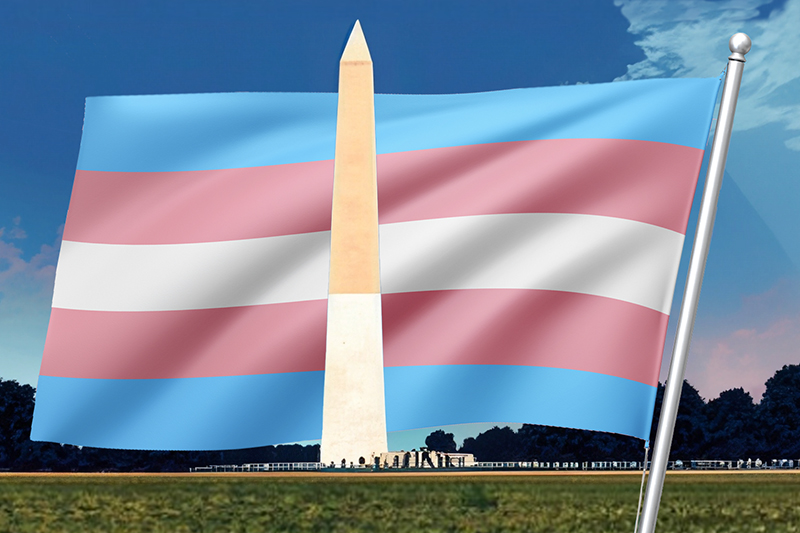Cooper signs HB 2 “repeal” bill but anti-LGBT restrictions stay intact

In spite of reporting from most mainstream news outlets trumpeting the “repeal” of North Carolina’s controversial HB 2 law, the law isn’t dead. Rather, it’s just been given a kinder, gentler makeover.
Under the terms of the new bill, HB 2 is repealed, but state agencies and localities are prevented from passing any regulation on restrooms not previously approved by the General Assembly. That means that no state agency, municipality, or state-funded university can create a policy explicitly allowing transgender people to use the restroom that matches their gender identity. The bill also places a moratorium on local ordinances that seek to extend protections to LGBTQ people in employment and non-restroom public accommodations. That moratorium doesn’t expire until Dec. 1, 2020.
Within hours of its passage in the House and Senate, Gov. Roy Cooper (D) enthusiastically signed the “repeal” law — forged as a compromise to break the standstill between the governor and leaders in the Republican-dominated General Assembly — in the hope of convincing the NCAA to award the state a number of sporting championship events that it would like to host. The NCAA previously indicated it would pass by North Carolina cities and other localities as potential host sites for those events if they had laws on the books that were considered hostile to the LGBTQ community.
Cooper and General Assembly leaders also hope that the repeal-in-name-only will convince businesses that had previously avoided doing business with the state because of concerns over HB 2 to reverse course. According to an Associated Press analysis, between cancelled conventions, concerts and other events, and a number of scuttled expansions or relocations by major corporations, North Carolina is estimated to lose over $3.76 billion over the next 12 years.
Following the measure’s signature into law, Republican leaders and Cooper were already attempting to portray the bill in a positive light. Moore unleashed a series of tweets that attempted to convince social conservatives that Republicans had not compromised “public safety” in approving the compromise measure.
NOW: "We have strengthened our state's privacy protections…This is a great step forward." #ncpol#ncga pic.twitter.com/9x8g7vWD8P
— Speaker Tim Moore (@NCHouseSpeaker) March 30, 2017
"We stood by our core values and principles." #ncpol #ncga pic.twitter.com/w3xP6UIJBl
— Speaker Tim Moore (@NCHouseSpeaker) March 30, 2017
"We've safeguarded protections…we have not moved." #ncpol #ncga pic.twitter.com/B6FmWQsiu9
— Speaker Tim Moore (@NCHouseSpeaker) March 30, 2017
"We were not going to just fold…we were not going to back off of our core principles." #ncpol #ncga pic.twitter.com/P33iBb3zG4
— Speaker Tim Moore (@NCHouseSpeaker) March 30, 2017
At a news conference with reporters, Moore attempted to portray the bill as completely reasonable.
“It was a very measured approach,” he said. “I think this bill, as written, is also something that is very defensible in court. … No one is 100 percent happy, but I would say I’m 95 percent happy.”
“For over a year now, House Bill 2 has been a dark cloud over our great state. It has stained our reputation. And it has discriminated against our people. And it has caused great economic harm to many of our communities,” Cooper said in a statement. “Today, we repealed House Bill 2. We begin to end discrimination. We begin to bring back jobs and sporting events. And we begin to repair our reputation.”
Cooper also insisted that the law provides for more LGBTQ protections to be passed in the future — at least in 2020, after the moratorium on ordinances is lifted. He also claimed that, under the repeal, transgender people would no longer have to fear breaking the law if they use the restroom matching their gender identity — though any locality is prohibited from explicitly making that promise via nondiscrimination ordinance.
“In a perfect world, we would have repealed HB 2 today and added full statewide protections for LGBT North Carolinians. Unfortunately, our supermajority Republican legislature will not pass these protections. But this is an important goal that I will keep fighting for.”
But LGBTQ groups and their allies are anything but satisfied, accusing Cooper of “selling out” for the sake of political expediency.
“Why mince words? This is a fake repeal,” said Ian Palmquist, the program director of Equality Federation, “As a proud North Carolinian, I’m deeply disappointed that HB 2’s shameful ban on local protections will continue.”
“This is the end of HB 2 in name only,” added Mara Keisling, executive director for the National Center for Transgender Equality. “The bill that was passed today is a disgrace — not a ‘fix,’ a ‘reset,’ or a ‘compromise,’ and certainly not a repeal. Putting any kind of moratorium on civil rights — whether 6 months or 3 years long — is dangerous and wrong. And signing this bill into law absolutely does not take North Carolina back to where it was before March 2016. Before last year, cities and towns around North Carolina were free to protect their residents from discrimination without the state sticking its nose where it didn’t belong.”
Support Metro Weekly’s Journalism
These are challenging times for news organizations. And yet it’s crucial we stay active and provide vital resources and information to both our local readers and the world. So won’t you please take a moment and consider supporting Metro Weekly with a membership? For as little as $5 a month, you can help ensure Metro Weekly magazine and MetroWeekly.com remain free, viable resources as we provide the best, most diverse, culturally-resonant LGBTQ coverage in both the D.C. region and around the world. Memberships come with exclusive perks and discounts, your own personal digital delivery of each week’s magazine (and an archive), access to our Member's Lounge when it launches this fall, and exclusive members-only items like Metro Weekly Membership Mugs and Tote Bags! Check out all our membership levels here and please join us today!






















